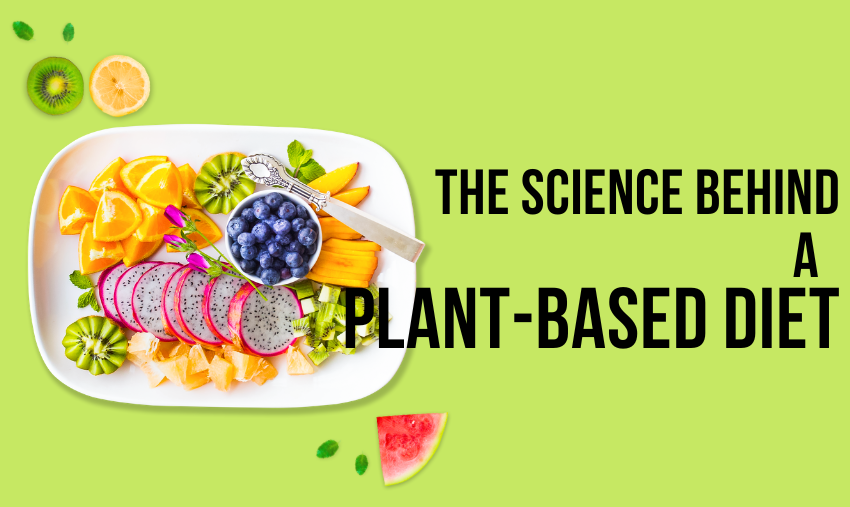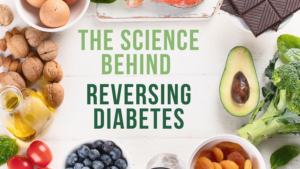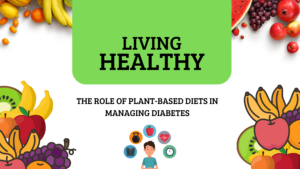In the world of health and wellness, diabetes is often perceived as an unalterable life sentence. Decades of research, however, have shown this notion to be misguided. We now stand on the precipice of a new understanding – diabetes is not a life sentence, but a reversible condition. This shift in understanding has been spearheaded by a series of groundbreaking clinical studies by renowned doctors like Dr. Neal D. Barnard, Dr. Joel Fuhrman, and Dr. Gabriel Cousens. Their collective work, coupled with the efforts of other global health professionals, has given us the keys to unlock a diabetes-free life.
The Science Behind Diabetes
At the heart of this revolution is a simple yet potent tool: the plant-based diet. Its efficacy in combating diabetes is rooted in a deep understanding of the biological mechanisms that lead to this condition, and how diet influences these mechanisms.
Type 2 diabetes, the most prevalent form of diabetes, is a condition in which the body becomes resistant to insulin, a hormone crucial for regulating blood sugar levels. This insulin resistance prevents glucose from entering cells efficiently, leading to high blood sugar levels, which is the hallmark of diabetes. Dietary choices can significantly impact this intricate biological machinery.
Foods high in refined carbohydrates or added sugars, such as soda, candy, and certain types of bread, can cause rapid spikes and crashes in blood sugar levels, exacerbating insulin resistance. On the other hand, foods rich in fiber, like fruits, vegetables, and whole grains, can help regulate blood sugar levels and improve insulin sensitivity.
The Impact of the Modern Diet
The modern diet, heavily leaning towards processed foods, refined sugars, grains, and oils, as well as trans fats, has been linked to a surge in diabetes cases. These foods contribute to insulin resistance, promote inflammation, and are often devoid of necessary micronutrients, creating an internal environment ripe for the development of diabetes. For example, processed meats like sausages and hot dogs, baked goods loaded with trans fats, and sugary drinks are all part of a modern diet that contributes to insulin resistance.
The Power of a Plant-Based Diet
A plant-based diet, on the other hand, operates on a different spectrum. Renowned doctors like Barnard and Fuhrman have demonstrated through their clinical research that a vegan diet is three times more effective at controlling blood sugar levels compared to the standard diet prescribed for diabetes management. This diet is rich in nutrients, low in fat, and devoid of animal products that can interfere with insulin function.
In one of Dr. Barnard’s studies, 43% of participants following a vegan diet were able to reduce their diabetes medication, compared to just 26% in the control group. Similarly, Dr. Fuhrman’s research has shown that 90% of type 2 diabetes patients who followed a high-nutrient density diet were able to end their insulin use within the first month.
How a Plant-Based Diet Works
A low-fat, plant-based diet helps mitigate the dietary causes of diabetes by addressing three main factors: reducing fat that interferes with hormones, alkalizing and reducing inflammation in the system, and providing an abundance of micronutrients. It helps insulin bind more efficiently to cell receptors, opening pathways for glucose to enter the cell, thereby decreasing blood sugar levels.
Plant-Based Breakfast: A Strong Start to Your Day
Starting the day with a nutrient-rich, alkalizing green smoothie, for instance, can help reduce overnight acidity buildup and provide a healthy, low-fat, and nutritious start to your day. This smoothie, packed with spinach, cucumbers, ginger, lemon, and chia seeds, is a testament to the power of a plant-based diet in managing diabetes.
Other plant-based breakfast options could include a bowl of oatmeal topped with fresh fruits and nuts, whole grain toast with avocado, or a tofu scramble with a variety of vegetables.
Additional Benefits of a Plant-Based Diet
Further, a low-fat, plant-based diet not only manages diabetes but also significantly improves overall health. It aids in lowering cholesterol, reducing blood pressure, and promoting weight loss, which are beneficial for individuals with diabetes who often have to contend with these comorbid conditions.
A study in the Journal of the American Heart Association found that a plant-based diet can lower cholesterol levels, reducing the risk of heart disease. Another study published in the British Journal of Nutrition showed that a plant-based diet can significantly reduce blood pressure. Furthermore, a review in the Journal of General Internal Medicine demonstrated that plant-based diets are effective for weight loss.
The Importance of a Holistic Approach
While diet is an essential component of diabetes management, it’s just one piece of the puzzle. A holistic approach encompassing exercise and meditation is vital. Regular physical activity helps improve insulin sensitivity, while mindfulness practices like meditation can help manage stress, a well-known aggravator of blood sugar levels.
Aerobic exercises like walking, swimming, or cycling, as well as resistance training, can be particularly beneficial for insulin sensitivity. As for mindfulness practices, studies have shown that mindfulness-based stress reduction (MBSR) and yoga can help manage stress and improve blood sugar control.
Conclusion
Harnessing the power of a plant-based diet, coupled with a holistic approach, can set you on the path to a diabetes-free life. However, always remember to consult your healthcare provider before making any significant dietary changes or beginning any health program. Remember, reversing diabetes is not a quick fix but a journey towards a healthier lifestyle.
Welcome to the journey towards a diabetes-free life. Together, let’s redefine the narrative around diabetes and realize that a life free from the clutches of this condition is not only possible but attainable.






